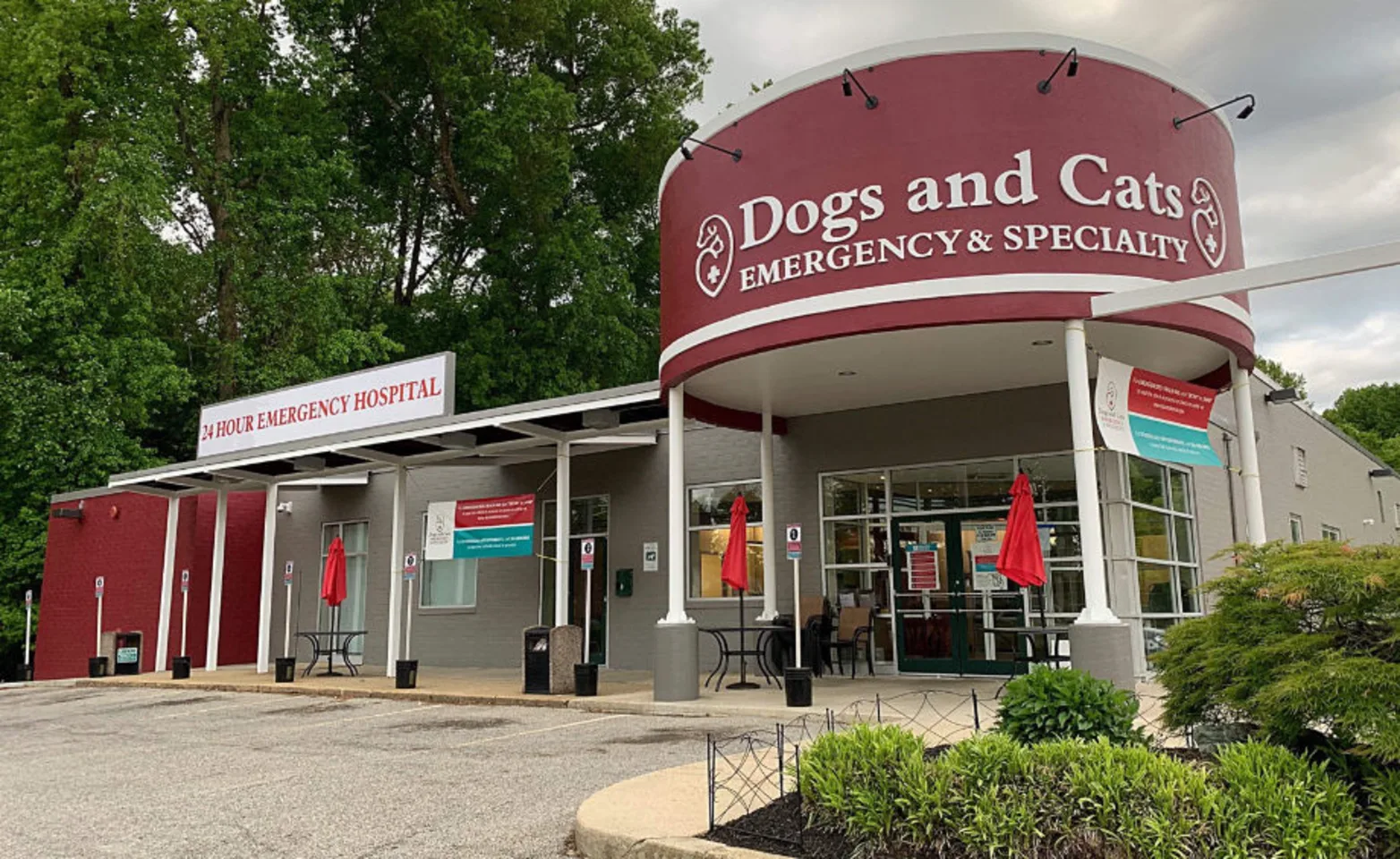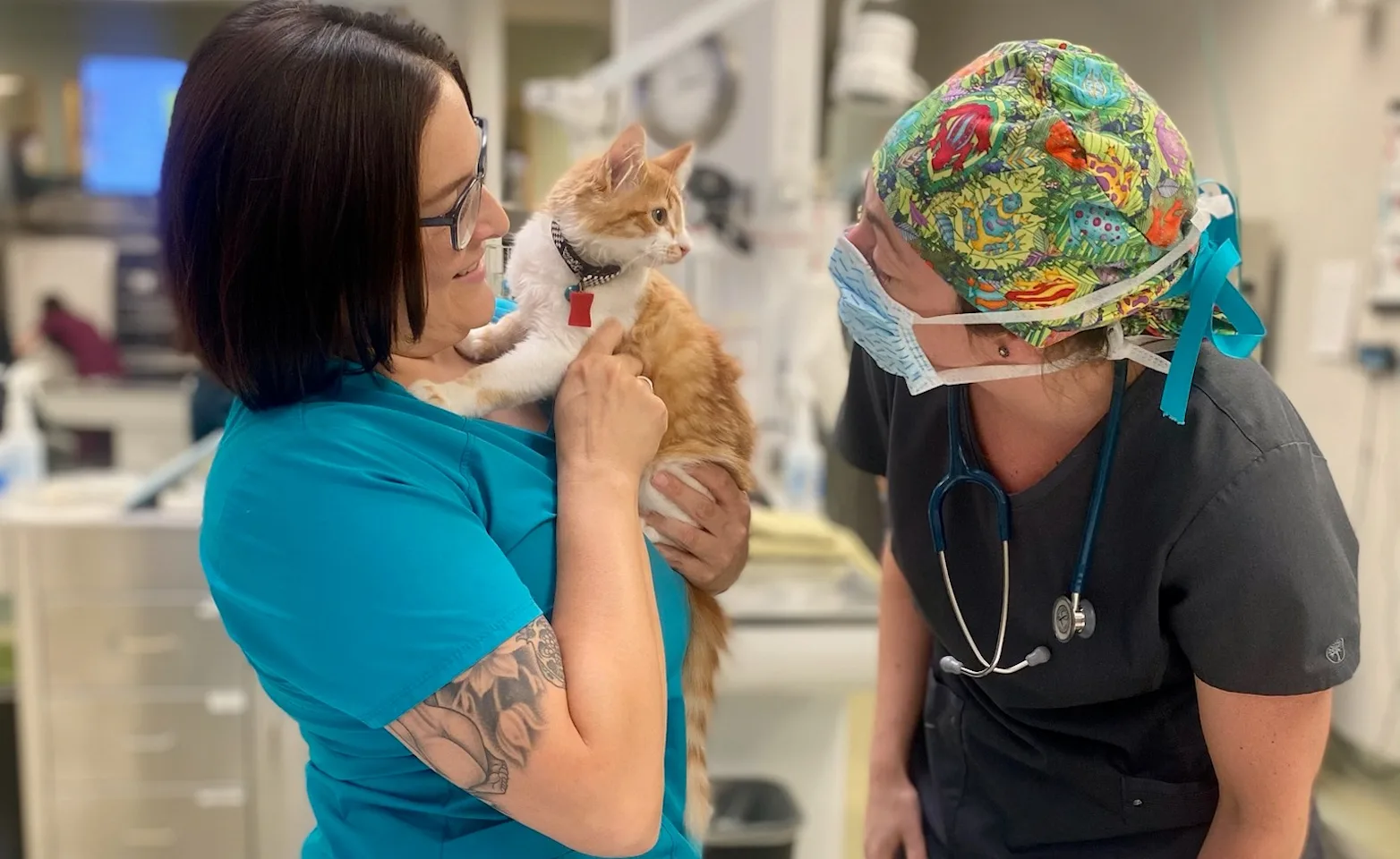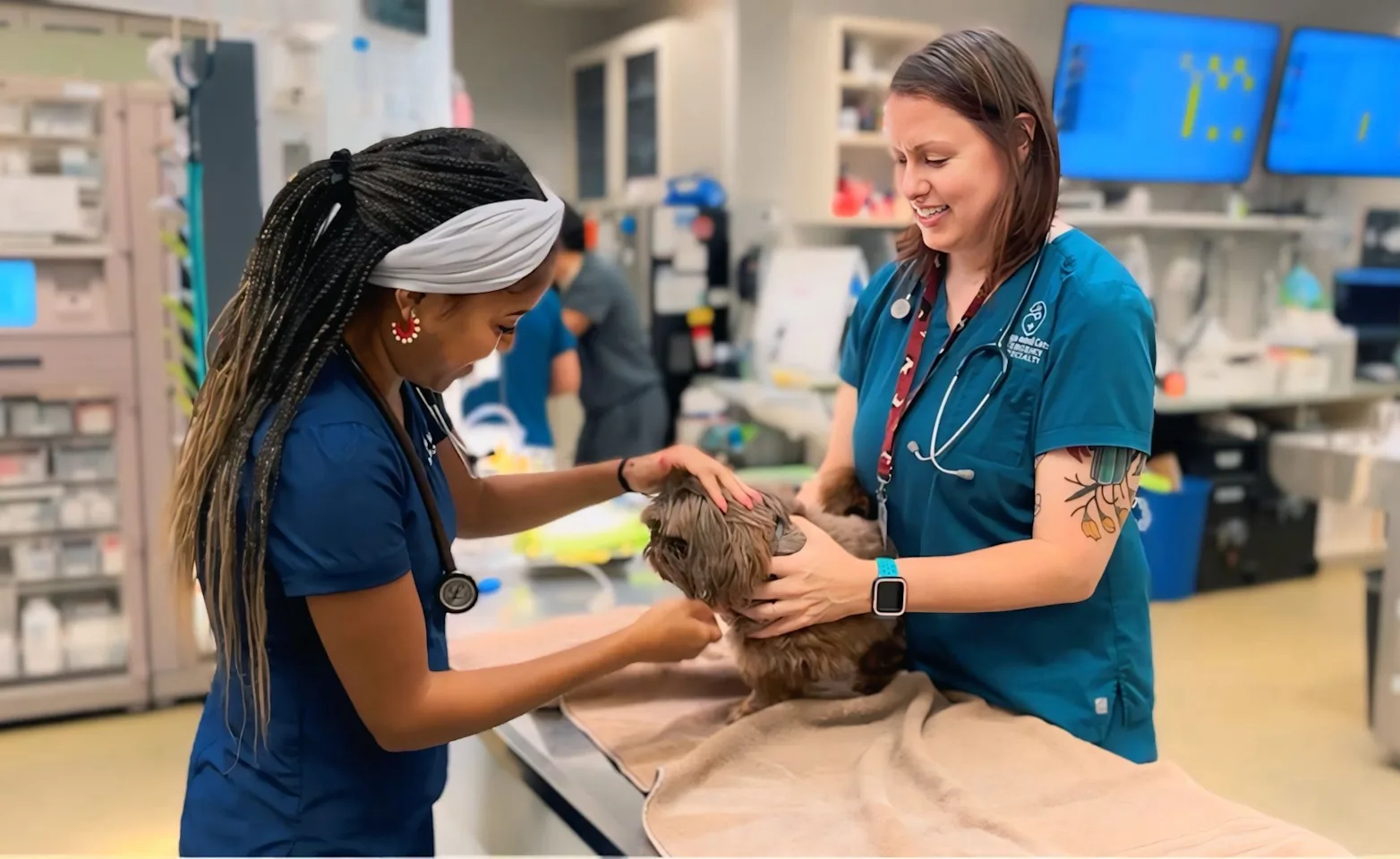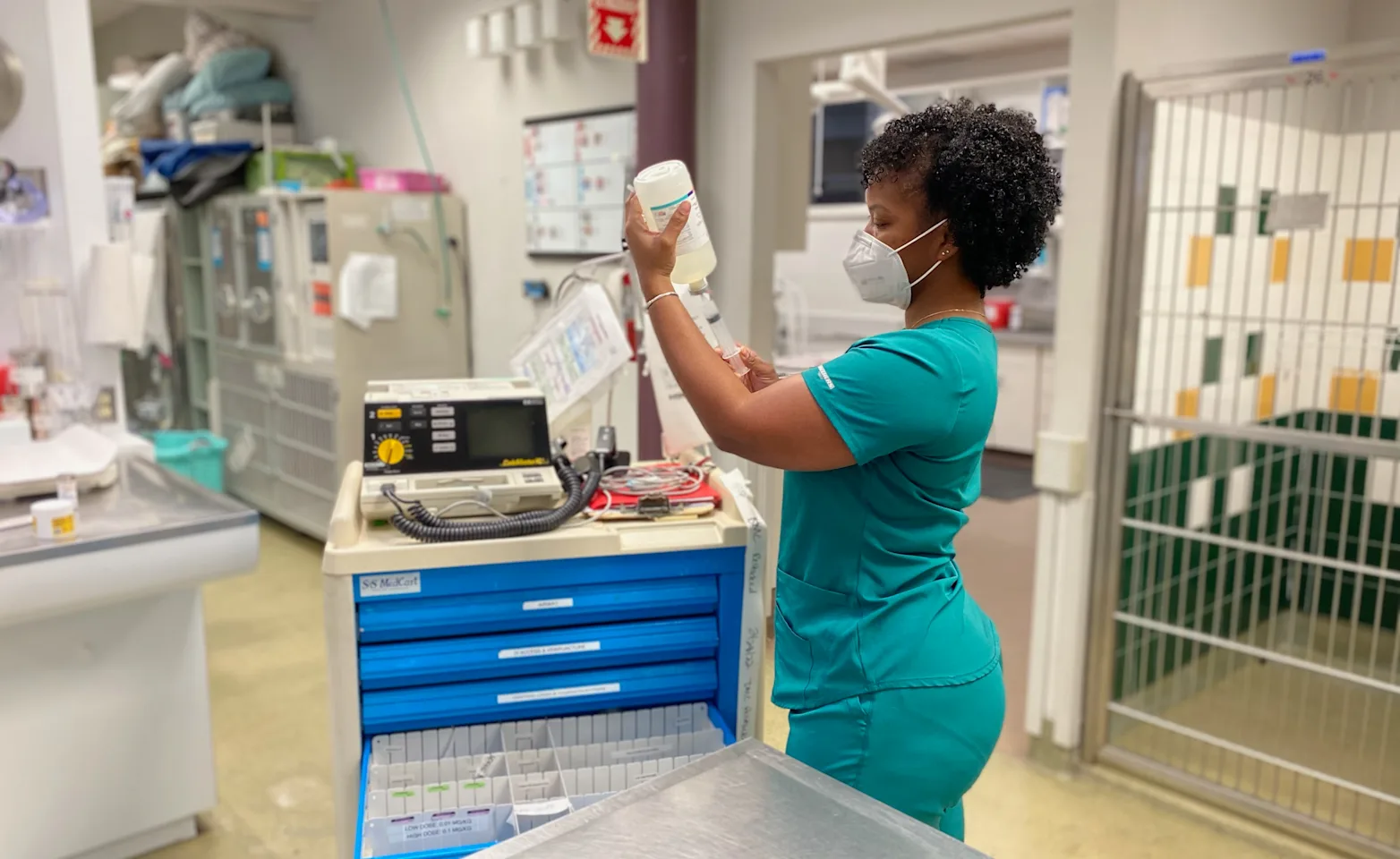Dogs and Cats Emergency & Specialty

24/7 Emergency
Address: 6700 Laurel-Bowie Rd (Rt.197), Bowie, MD 20715
Phone: (301) 809-8800
If your pet is experiencing an emergency, please bring them to our hospital immediately.
CLASSIFICATION 1: CRITICAL
Treatments must be initiated within minutes.
Actively Seizing
Road Traffic Accidents
Excessive Bleeding
Heat Stroke
Poisoning
Difficulty Breathing
CLASSIFICATION 2: URGENT
Currently stable, but is a first priority patient.
Closed Fracture
Diarrhea
Actively Vomiting
Bowel Obstruction
Urinary Tract Problems
Birthing Difficulties
CLASSIFICATION 3: NON-URGENT
Stable and patient will be seen as soon as possible.
Skin Conditions
Lameness
Sore Eyes/Ears
Abscesses
Minor Wounds
Chronic Diseases

Consultation
The goal of our team is to form a partnership with you and your primary care veterinarian to ensure that your pet is receiving the most comprehensive care. To help us achieve this, please ensure records are available prior to your appointment. During your consultation, your pet’s doctor will:
take a thorough medical history
review any medical records available
perform a physical examination
develop a treatment plan
discuss any recommended diagnostic and treatment options
provide an itemized estimate for your approval
provide you with a summary of your visit and communicate a follow-up plan with your primary vet

Diagnostics
Cage-side ultrasound (fluid check): Commonly used as a patient-side diagnostic tool to rapidly identify underlying conditions, such as the detection of abdominal, thoracic, and cardiac effusion, and help direct further diagnostics and therapy.
In house lab work (CBC, Chemistry, Urinalysis): our in-house laboratory allows us to perform many types of testing that can aid in the diagnosis and treatment of your pet. Common lab work includes CBC, Chemistry, and Urinalysis.
Telemetry monitoring (ECG): This diagnostic is used to record the electrical activity of the heart at rest. It provides an accurate assessment of the heart rate, and it registers the type of disturbance in the heart rhythm. Allows doctors to quickly intervene in cases of arrhythmia.
Radiology Ultrasound: One of the most common test, at DCES this is performed by our radiologist 5 days a week, allow for immediate interpretation and ability to perform guided sampling.

Critical Care
Our collaborative, team-oriented approach to the treatment of our patients means that your pet is always receiving the very best, most comprehensive care possible. Each morning our team of emergency doctors and board-certified specialists will discuss your pet's treatment plan during case rounds, and you can expect daily phone updates from our Hospitalists or Critical Care Specialist to keep you apprised of your pet's progress.
